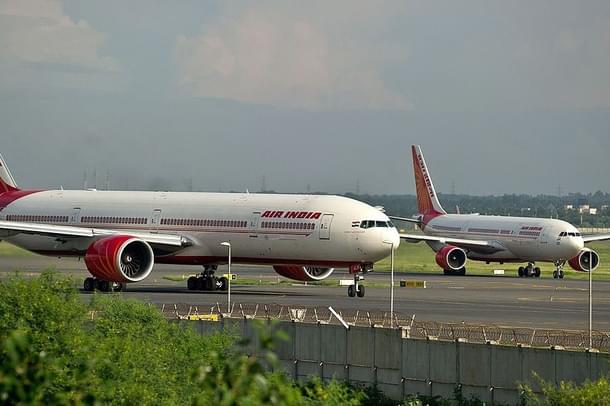Business
A Zero-Debt Air India With Few Riders Would Be The Best Way To Privatise It
R Jagannathan
Jan 13, 2020, 02:36 PM | Updated 02:31 PM IST
Save & read from anywhere!
Bookmark stories for easy access on any device or the Swarajya app.


From the looks of it, the government could yet again make Air India a tough sell. While the conditions for a strategic sale are much better this time than what they were in 2018 (bidders will be offered 100 per cent and a lower debt load), foreign bidders may again be unenthusiastic with the likely requirement that they restrict themselves to 49 per cent and no operational control.
The problem with keeping foreign bidders at arm’s length is that it reduces the potential list of serious bidders to barely two or three. The most solvent among bidders, IndiGo, is probably ruled out for reasons of already high market dominance. At best it will be allowed to bid for bits and pieces of the airline, including some ground handling services and foreign routes. But since the main bidders would want that too, that rules out IndiGo as a major bidder right at the outset.
This leaves SpiceJet and GoAir — and the Tatas. GoAir is simply too small to make a bid for Air India, and even SpiceJet may not be too aggressive with its bid, given its mounting losses over the grounding of its Boeing 737 Max planes. This leaves only the Tatas as a major potential bidder, but they already have their fingers in two existing domestic airlines, Air Vistara and Air Asia.
If the Tatas have to bid for Air India, the airline has to fit into one of these two slots. It has to be merged with either the full-service Vistara, or the low-cost carrier (LCC) Air Asia. A third possibility is a joint bid with Singapore International Airlines (SIA), which again is the minority partner in Air Vistara. An Air India acquisition with 49 per cent foreign shareholding will fit in if the idea is to create a larger full-service airline in Air Vistara, with the possibility of retaining Air Asia as an LCC separately.
The problem with all these assumptions is that a healthy price will be possible only if the conditions for the bids are sensible. These include a low-debt profile, guarantee of operational control to the winning bidder, and freedom to operate in the domestic markets on a par with the rest. Some foreign airlines may be interested in Air India if it can be used to feed domestic passengers to their international hubs while retaining the right to ply high-density domestic routes without being constrained by minority ownership.
Given these realities, a successful Air India privatisation would require the best possible set of conditions for bidders. These should include:
One, a zero-debt Air India, so that the price bid is seriously high. The other way to do it is to hold an auction based on the amount of debt the winning bidder is willing to take on its books. The bidder willing to take on the biggest chunk of debt, currently estimated at Rs 74,000 crore (which includes both long-term debt and dues payable to suppliers), wins. Right now it is not clear how much debt will be left on Air India books at the time of the sale, though some of it has already been transferred to a special purpose vehicle.
Two, ideally foreign airlines should be offered 51-100 per cent. If given only 49 per cent, they should have the right to operational control and a future increase to 100 per cent (ie, if the policy changes to allow this), by paying an additional control premium at that time.
Three, the airline should offer the entire set of assets — buildings, ground handling services, the subsidiary airline, the cargo operations, etc — as a package, and also piecemeal. This way, even if the airline gets no bids, at least some parts can be privatised. A half-loaf is better than no loaf.
Ownership by a foreign airline should come with one proviso — ceding the name Air India back to the taxpayer. It would make no sense to allow, say, Qatar Airways to own a national carrier called Air India. A foreign-owned Air India should rename the airline brand — which may not be such a bad idea even from their point of view, since Air India’s franchise is hardly unblemished.
Put simply, trying to put too many conditions to the Air India sale is not a great way to privatise it.
Jagannathan is former Editorial Director, Swarajya. He tweets at @TheJaggi.





